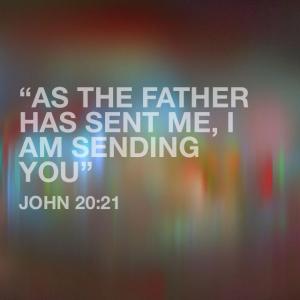
A COMMUNITY OF MISSIONARY DISCIPLES
The term “community” can be heard in many different spheres these days. You may hear it mentioned in places like business meetings, church gatherings and city development boards. Everyone is talking about “community”. Generally, it’s in a positive light. For instance, someone may boast of the “sense of community” the culture of their business fosters, or the tone of “community” in a suburban town. When we think about “community” within the sphere of the local church, we are often referring to a group of people who have committed to “do life” or “grow” along side one another. Jesus’ specific practice of “community” was within the active process of discipleship. The mission of God advances as disciples of Jesus live on mission together in community. In Jesus’ picture of community, discipleship and mission are inseparable.
In a passage most are familiar with, Matthew 28:18-20, we are given a description of what it means to be on mission with Jesus.
And Jesus came and said to them, “All authority in heaven and on earth has been given to me. Go therefore and make disciples of all nations, baptizing them in the name of the Father and of the Son and of the Holy Spirit, teaching them to observe all that I have commanded you. And behold, I am with you always, to the end of the age.” – Matt. 28:18-20
The way we are to “make disciples” is meant not only for our good, but for the purpose of displaying and declaring the Gospel inside and outside the community. Followers of Jesus are to be disciples, on mission, in community.
DISCIPLES DISPLAY THE GOSPEL
It’s one thing to be a part of community that is a “team of missionaries” and quite another to be a part of a community that is a “missionary team”. The distinction in the terms is slight, but the implications couldn’t be bigger. As Todd Engstrom writes, a “team of missionaries” is a group of people scattered in a variety of different missional directions. One person is focusing here, another is focusing there and still another is doing something different in another location. The significance of a “missionary team” is that the community focuses in one specific direction with a clear purpose and puts the gospel on display in how they treat those inside AND outside their “community”. The uniqueness of these people serves to point others to Jesus as a people who believe what He says, live by what He says and communicate what Jesus says.
Here’s another way to put it: “The only way for the world to know that it is being redeemed is for the church to point to the Redeemer by being a redeemed people.” – Stanley Hauerwas and William Willimon
A community of people on mission in their neighborhoods and cities intentionally postures themselves as an outward-facing group of people determined to display and declare the gospel out of a motivation of who God is and what He’s done.
DISCIPLES DECLARE THE GOSPEL
The outcome of experiencing community in this way from the outside naturally leads to the question “Why do you live that way?”. So we must “Always be prepared to give an answer to everyone who asks you to give the reason for the hope that you have.” 1 Peter 3:15 It’s clear that a community on mission together naturally experiences deeper community as they pursue the mission together. Aiming for community without mission will result in a shallow version of community built on serving ourselves before others. In addition, community formed from discipleship naturally overflows as mission to others. Go here for more on “displaying and declaring the Gospel.”
The best hermeneutic of the Gospel is a community of men and women who believe it and live by it. – Leslie Newbigin
In the next post, we’ll consider how our motivation for mission and means for mission collide in the mission itself.












